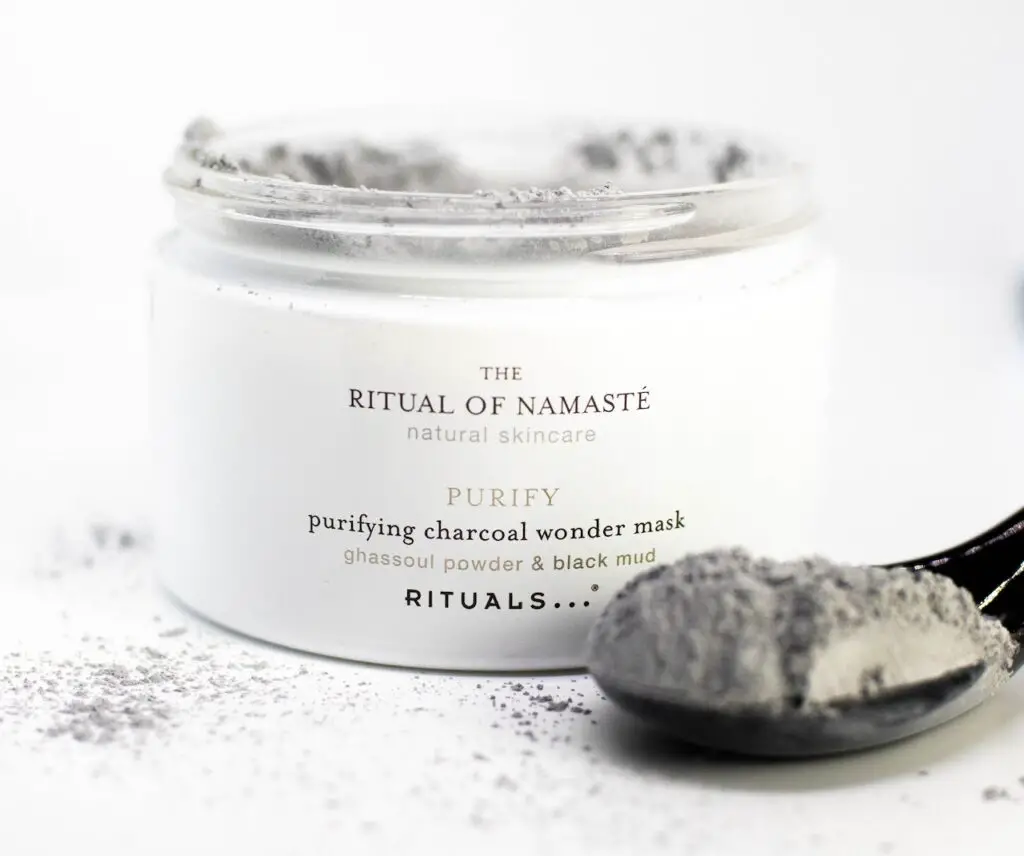Taking care of your skin is important, regardless of your gender. In this article, we will discuss valuable tips and tricks specifically tailored for men to keep their skin hydrated. Having hydrated skin not only promotes a healthy and youthful appearance but also contributes to overall skin health. By following these guidelines, you can achieve and maintain well-hydrated skin that feels smooth and looks radiant.
Understanding the Importance of Hydrated Skin
Having well-hydrated skin is not only about achieving a superficially plump and smooth appearance. It goes beyond aesthetics and plays a vital role in maintaining overall skin health. Hydrated skin retains its natural elasticity and suppleness, preventing the formation of fine lines, wrinkles, and sagging.
Furthermore, proper skin hydration is essential for maintaining a healthy skin barrier function. The skin barrier acts as a protective shield, guarding against environmental aggressors, pollutants, and harmful bacteria. When the skin is properly hydrated, it is better equipped to defend against these external factors and reduce the risk of skin conditions such as dryness, irritation, and inflammation.
Hydrated skin also has a vibrant and radiant appearance, giving you a youthful and healthy look that boosts your confidence. Therefore, prioritizing skin hydration is not just about surface-level beauty; it is about investing in the long-term health and vitality of your skin.

Related: The Benefits of Collagen Supplements for Skin, Hair, and Nails
Factors Affecting Skin Hydration
External Factors
External factors can have a significant impact on the hydration levels of your skin. Environmental conditions, such as low humidity and harsh weather, can deplete the moisture from your skin, leaving it dry and parched. Excessive sun exposure is another common external factor that can strip away the skin’s natural moisture and lead to sunburn and dryness.
Additionally, spending prolonged periods in air-conditioned environments or taking hot showers can contribute to skin dehydration. Being mindful of these external factors and taking steps to protect and nourish your skin can help maintain its hydration and overall health.
Internal Factors
Internal factors also play a significant role in skin hydration. As men age, their skin naturally produces less sebum, the skin’s natural oil that helps to retain moisture. This decrease in sebum production can result in drier skin. Genetics can also influence the skin’s ability to retain moisture, with some individuals genetically predisposed to having naturally drier skin.
Also, certain health conditions, medications, and lifestyle choices can impact skin hydration. For example, conditions like eczema or psoriasis can cause dryness, while certain medications may have a drying effect on the skin. Making healthy lifestyle choices, such as maintaining a balanced diet and staying hydrated, can support internal factors that contribute to skin hydration.

Related: The Best Men’s Grooming Products for Oily Skin
Skincare Routine for Hydrated Skin
Cleansing and Moisturizing
Cleansing and moisturizing are essential steps in any skincare routine, especially when it comes to maintaining hydrated skin. When it comes to cleansing, it’s important to choose a gentle cleanser that effectively removes dirt, oil, and impurities without stripping away the skin’s natural oils. Harsh cleansers can disrupt the skin’s moisture balance and leave it feeling dry and tight. Opt for cleansers that are specifically formulated for your skin type, whether it’s dry, oily, or combination skin.
After cleansing, moisturizing is key to replenishing and locking in moisture. Look for a moisturizer that suits your skin type and contains hydrating ingredients such as hyaluronic acid, glycerin, or ceramides. These ingredients help attract and retain moisture, keeping your skin hydrated throughout the day. Applying moisturizer to slightly damp skin can also enhance its absorption and effectiveness.
Exfoliation for Smooth and Hydrated Skin
Exfoliation is a crucial step in achieving smooth and hydrated skin. By removing dead skin cells, exfoliation helps to improve skin texture, promote cell turnover, and allow better absorption of moisturizers. When exfoliating, it’s important to choose a gentle exfoliant that won’t irritate or damage the skin. Physical exfoliants, such as scrubs or brushes, can be effective, but they should be used with a light touch to avoid over-exfoliation.
Another option is chemical exfoliants, such as alpha-hydroxy acids (AHAs) or beta-hydroxy acids (BHAs), which work by gently dissolving the bonds between dead skin cells. These chemical exfoliants can be found in products like toners, serums, or masks.
It’s recommended to exfoliate 1-2 times a week to avoid overdoing it and potentially causing irritation. After exfoliating, follow up with a hydrating moisturizer to replenish the skin’s moisture barrier.
Hydration from Within: Diet and Water Intake
Hydration from within is just as important as external skincare practices for achieving and maintaining hydrated skin. Your diet and water intake play a crucial role in skin hydration. To promote healthy and well-hydrated skin, include foods rich in water content, such as fruits and vegetables, in your daily meals. These foods, like watermelon, cucumbers, and oranges, not only provide hydration but also contain essential vitamins and antioxidants that contribute to skin health.
Ensure you drink an adequate amount of water throughout the day. Water helps to flush out toxins, support cellular function, and maintain the skin’s moisture balance. Aim to drink at least eight glasses of water daily, and increase your intake if you engage in physical activity or are in a dry environment.
Sun Protection and Hydration
Sun protection is not only crucial for preventing sunburn and reducing the risk of skin cancer, but it also plays a role in maintaining skin hydration. Excessive sun exposure can lead to skin damage, including dryness and dehydration. The sun’s UV rays can strip the skin of its natural moisture, leaving it parched and prone to premature aging.
To protect your skin from the sun, always apply a broad-spectrum sunscreen with a minimum SPF of 30 before heading outdoors. Reapply every two hours or more frequently if you’re sweating or swimming. In addition to sunscreen, seek shade during peak sun hours, wear protective clothing like hats and sunglasses, and consider using an umbrella or sun-protective clothing when spending prolonged periods outdoors.

Related: The Benefits of Tea Tree Oil for Men’s Skincare
Special Considerations for Men’s Skincare
Addressing Specific Concerns
Addressing specific concerns is essential when it comes to keeping your skin hydrated. Men may have unique skincare needs that require targeted solutions. For example, facial hair care is crucial for those with beards or mustaches. Using a gentle cleanser and a moisturizer suitable for your skin type can help keep both your skin and facial hair hydrated.
Furthermore, men often experience post-shave irritation, which can lead to dryness and discomfort. It’s important to choose products specifically designed for post-shave care, such as soothing balms or moisturizers that help calm the skin and restore its moisture balance.
Avoiding Harsh Products
Avoiding harsh products is crucial in maintaining hydrated skin. Men should steer clear of using bar soaps or alcohol-based aftershaves, as they can strip the skin of its natural oils and lead to dryness. These products can disrupt the skin’s moisture balance and compromise its ability to retain hydration.
Instead, opt for gentle alternatives such as mild cleansers and alcohol-free aftershaves. Look for products that are specifically formulated to hydrate and nourish the skin without causing irritation or dryness. By avoiding harsh products, you can protect your skin’s natural moisture barrier and promote optimal hydration for a healthy and vibrant complexion.

Related: Is Skin Cancer Melanoma Affecting More Men than Women?
Common Mistakes to Avoid
Overwashing the Face
Overwashing the face is a common mistake that can lead to dry and dehydrated skin. While it’s important to cleanse the face to remove dirt, oil, and impurities, excessive washing can strip away the skin’s natural oils, leaving it dry and prone to irritation.
Stick to cleansing your face twice a day, in the morning and before bed, using a gentle cleanser suitable for your skin type. This allows you to maintain a balanced moisture level while keeping your skin clean and refreshed.
Ignoring the Neck and Body
When it comes to skincare, it’s essential not to overlook the neck and body. While much attention is often focused on the face, neglecting the rest of the body can result in uneven hydration. Extend your skincare routine beyond the face by moisturizing the neck and body as well.
Use a hydrating lotion or cream to nourish and replenish the skin, paying attention to areas prone to dryness, such as elbows and knees. By giving proper care to the neck and body, you can ensure overall skin hydration and maintain a smooth and healthy complexion from head to toe.

Related: The Top 8 Supplements for Skin Health: According To Medical Experts
Best Products for Hydrated Skin
Moisturizers
Moisturizers are a key component of any skincare routine, especially when it comes to keeping the skin hydrated. Choosing the right moisturizer for your skin type is crucial. Look for products that are specifically formulated for dry, oily, or combination skin. Moisturizers with hydrating ingredients like hyaluronic acid, aloe vera, and shea butter provide an extra boost of moisture and help restore the skin’s natural hydration levels.
Applying moisturizer to clean skin, both morning and night, helps lock in moisture and create a protective barrier, preventing moisture loss throughout the day. By incorporating a suitable moisturizer into your skincare regimen, you can effectively hydrate your skin, leaving it smooth, supple, and nourished.
Hydrating Face Masks
Hydrating face masks are a fantastic addition to any skincare routine, providing an extra boost of moisture and nourishment to the skin. These masks are specifically formulated to deliver intense hydration and rejuvenation. Look for masks that contain hydrating ingredients like hyaluronic acid, glycerin, or natural oils such as jojoba or argan oil.
Applying a hydrating face mask once or twice a week can help replenish moisture levels, soothe dryness, and improve overall skin texture. Leave the mask on for the recommended time, allowing the skin to absorb the beneficial ingredients. After removing the mask, gently massage any remaining product into the skin and follow up with your regular skincare routine. Hydrating face masks provide an indulgent and effective way to give your skin an extra dose of hydration, leaving it radiant, plump, and revitalized.
Additional Tips and Tricks
Using a Humidifier
Using a humidifier can be a game-changer when it comes to maintaining hydrated skin. Humidifiers add moisture to the air, which helps combat dryness caused by low humidity levels, especially during the winter months or in arid climates. By increasing the moisture in the environment, a humidifier can prevent the skin from losing its natural hydration and becoming dry and flaky.
It can also alleviate symptoms of dry skin conditions like eczema or psoriasis. Place a humidifier in your bedroom or workspace to enjoy the benefits of improved air moisture, which will contribute to keeping your skin hydrated and healthy.
Avoiding Hot Showers
Avoiding hot showers is crucial for maintaining hydrated skin. While hot water may feel relaxing, it can actually strip the skin of its natural oils, leading to dryness and dehydration. Instead, opt for lukewarm water when showering or washing your face.
Lukewarm water helps preserve the skin’s moisture barrier and prevents excessive moisture loss. Additionally, limit the duration of your showers to avoid prolonged exposure to water, which can further contribute to dryness. By opting for cooler temperatures, you can help retain your skin’s natural hydration and promote a healthier, more supple complexion.
Conclusion
In conclusion, maintaining hydrated skin is essential for men’s overall skin health and appearance. By following a proper skincare routine, addressing specific concerns, and making lifestyle adjustments, you can achieve and maintain well-hydrated skin. Remember to choose suitable products, protect your skin from the sun, and stay hydrated from within. With consistent effort and the right approach, you can enjoy healthy, smooth, and radiant skin.
FAQs
How often should I moisturize my skin?
It is recommended to moisturize your skin twice a day, in the morning and before bed, for optimal hydration.
Can I use the same moisturizer for my face and body?
While some moisturizers can be used on both the face and body, it is generally recommended to use products specifically formulated for each area, as the skin’s needs may vary.
Is drinking water enough to hydrate my skin?
While drinking water is essential for overall hydration, it is also important to use moisturizers and follow a proper skincare routine to keep your skin adequately hydrated.
Can certain medications contribute to skin dehydration?
Yes, certain medications can have a drying effect on the skin. Medications such as diuretics, antihistamines, and retinoids can interfere with the skin’s natural moisture balance and lead to dryness. If you’re taking medications and notice changes in your skin’s hydration levels, it’s advisable to consult with your healthcare provider or dermatologist.
Should I exfoliate my skin every day?
No, it is not recommended to exfoliate your skin every day, as it can cause irritation and damage. Exfoliate 1-2 times a week for best results.
Can men use face masks?
Absolutely! Men can benefit from using hydrating face masks, as they provide an extra boost of moisture to the skin.

